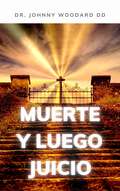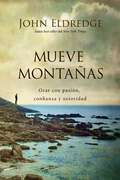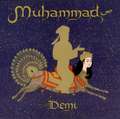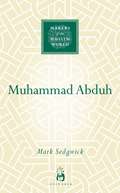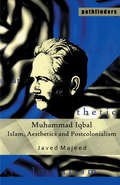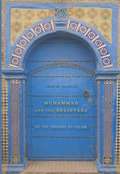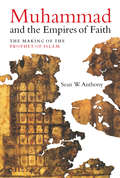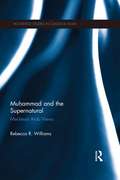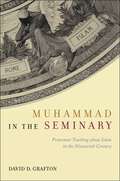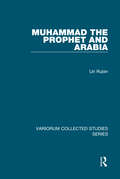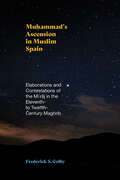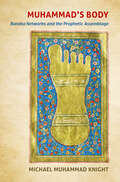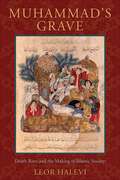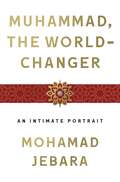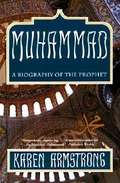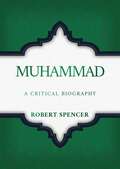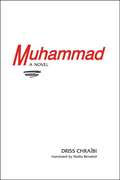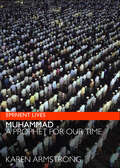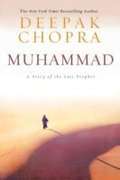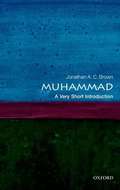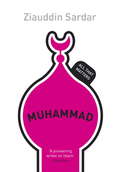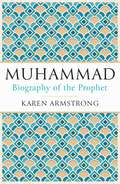- Table View
- List View
Muerte y Luego Juicio
by Dr Johnny Woodard DdJohnny y Jewel Woodard han servido al Señor a través del Compañerismo Misionero Bautista Pan de Vida desde 1995. El Dr. Woodard es Presidente del Instituto Bíblico Internacional por Correspondencia de Pan de Vida, que tiene más de 4.000 estudiantes en 114 países, incluyendo los 50 estados de América. Diseñó todos los cursos de estudio de la Biblia para las lecciones de los cursos de estudio de la Biblia. También es autor de varios libros, junto con 12 tratados del Evangelio que han sido distribuidos en todo el mundo. Él y su esposa Jewel fueron salvados a temprana edad en las Iglesias Bautistas. El Dr. Woodard ha pastoreado 7 iglesias, incluyendo una de las que fundó. Este libro es un estudio sobre las verdades acerca de la muerte y el juicio tomadas de la Palabra de Dios, la Biblia KJV. Rezamos para que sea una bendición para usted y le ayude a comprender mejor lo que le sucede a todos después de que la muerte los reclama.
Mueve montañas: Orar con pasión, confianza y autoridad
by John EldredgeJohn Eldredge, autor bestselling del New York Times ofrece una guía paso a paso hacia una oración eficaz. Los discípulos le preguntaron a Jesús «¡enséñanos como orar!». La mayoría de cristianos--la gran mayoría de gente--quiere orar y en verdad oran, pero no se sienten confiados en el proceso. Este libro ofrece una guía paso a paso a través de diversas ocasiones en las que las oraciones pueden ser aplicadas, incluyendo el fundamento bíblico que respalda «la técnica», anécdotas alentadoras y modelos de oraciones. Durante veinte años, John Eldredge ha enseñado a la gente como orar y ha tenido resultados asombrosos. Por su experiencia, él conoce lo que se interpone en el camino de un oración eficaz y como ayudar a la gente hacia una oración realmente efectiva. Este libro inicia con un replanteamiento libertador acerca de que es la oración. La mayoría de cristianos sostienen el equivocado concepto de que la oración es esencialmente «pedirle a Dios que intervenga». Esta suposición ha llevado a una confusión y dolor incalculables a muchos que hacen sus peticiones pero Dios parece no escuchar... o no le importa. Mientras Jesús dijo a sus discípulos «Te daré las llaves del reino de los cielos; todo lo que ates en la tierra quedará atado en el cielo, y todo lo que desates en la tierra quedará desatado en el cielo» (Mateo 16.19 NVI). Cuando actuamos desde nuestra posición de autoridad en Cristo, abordamos la oración con mucho más seguridad. Así como un padre espera que sus hijos crezcan y puedan vestirse ellos mismos y conseguir un empleo, Dios no quiere que sus hijos sean tan simples con respecto a algo tan esencial como la oración. La oración madura es una «relación de compañerismo con Dios para llevar a cabo las cosas».
Muhammad
by DemiMuhammad is the messenger of Islam. Born in Mecca in the year 570, Muhammad grew into a sensitive and thoughtful man who believed deeply in the worship of one true god. In his fortieth year, Muhammad experienced a revelation from the angel Gabriel that he, Muhammad, was the messenger of God. Over the next twenty-three years, he received many such revelations, all of which were written down by scribes at the time of revelation to become the Koran, the sacred scripture of Islam, a religion that is practiced by nearly one-quarter of the world's population and holds as its most sacred tenet that there is no god but God. Award-winning artist Demi here introduces the remarkable life of the Prophet Muhammad for young readers.
Muhammad Abduh (Makers of the Muslim World)
by Mark SedgwickMuhammad Abduh (1849-1905) is widely regarded as the founder of Islamic modernism. Egyptian jurist, religious scholar and political activist, he sought to synthesise Western and Islamic cultural values. Arguing that Islam is essentially rational and fluid, Abduh maintained that it had been stifled by the rigid structures implemented in the generations since Muhammad and his immediate followers. In this absorbing biography, Mark Sedgwick examines whether Abduh revived true Islam or instigated its corruption. Mark Sedgwick is Associate Professor of Arab History, Culture and Society at Aarhus University in Denmark.
Muhammad Iqbal: Islam, Aesthetics and Postcolonialism (Pathfinders Ser.)
by Javed MajeedBringing together Islamic studies, a postcolonial literary perspective, and a focus on the interaction between aesthetics and politics, this book analyses Iqbal’s Islamism through his poetry. It argues that his notion of an Islamist selfhood was expressed in his verse through the interplay between poetic tradition and creative innovation. It also considers how Iqbal expressed an Islamist geopolitical imagination in his work, and examines his exploration of the relationship between the modern West and a reconstructed Islam. For the first time, Iqbal’s personal letters have been drawn upon to provide an insight into his inner conflicts as articulated in his poetry. Concentrating on the complexity of his work in its own right, the book eschews the standard appropriation of Iqbal into any one political agenda — be it Indian nationalism, Muslim separatism or Iranian Islamic republicanism. With its analytical and in-depth reading of Iqbal’s verse and prose, this book opens a fresh perspective on Islam and postcolonialism. It will be a fascinating study for general readers and readers with interests in the intellectual and political history of modern South Asia, colonialism and postcolonialism, Islamic studies, and modern South Asian literature (especially Urdu and Persian poetry).
Muhammad and the Believers
by Fred M. DonnerThe origins of Islam have been the subject of increasing controversy in recent years. The traditional view, which presents Islam as a self-consciously distinct religion tied to the life and revelations of the prophet Muhammad in western Arabia, has since the 1970s been challenged by historians engaged in critical study of the Muslim sources. In Muhammad and the Believers, the eminent historian Fred Donner offers a lucid and original vision of how Islam first evolved. He argues that the origins of Islam lie in what we may call the "Believers' movement" begun by the prophet Muhammadâe"a movement of religious reform emphasizing strict monotheism and righteous behavior in conformity with God's revealed law. The Believers' movement thus included righteous Christians and Jews in its early years, because like the Qur'anic Believers, Christians and Jews were monotheists and agreed to live righteously in obedience to their revealed law. The conviction that Muslims constituted a separate religious community, utterly distinct from Christians and Jews, emerged a century later, when the leaders of the Believers' movement decided that only those who saw the Qur'an as the final revelation of the One God and Muhammad as the final prophet, qualified as Believers. This separated them decisively from monotheists who adhered to the Gospels or Torah.
Muhammad and the Empires of Faith: The Making of the Prophet of Islam
by Dr. Sean W. AnthonyIn Muhammad and the Empires of Faith, Sean W. Anthony demonstrates how critical readings of non-Muslim and Muslim sources in tandem can breathe new life into the historical study of Muhammad and how his message transformed the world. By placing these sources within the intellectual and cultural world of Late Antiquity, Anthony offers a fresh assessment of the earliest sources for Muhammad’s life, taking readers on a grand tour of the available evidence, and suggests what new insights stand to be gained from the techniques and methods pioneered by countless scholars over the decades in a variety of fields. Muhammad and the Empires of Faith offers both an authoritative introduction to the multilayered traditions surrounding the life of Muhammad and a compelling exploration of how these traditions interacted with the broader landscape of Late Antiquity.
Muhammad and the Supernatural: Medieval Arab Views
by Rebecca WilliamsMuhammad and the Supernatural: Medieval Arab Views examines the element of the supernatural (or miracle stories) in the life of the Prophet Muhammad as depicted in two genres: prophetic biography (sīra) and Qur'ān exegesis (tafsīr).
Muhammad in the Seminary: Protestant Teaching about Islam in the Nineteenth Century
by David D. GraftonUncovers what Christian seminaries taught about Islam in their formative yearsThroughout the nineteenth century, Islam appeared regularly in the curricula of American Protestant seminaries. Islam was not only the focus of Christian missions, but was studied as part of the history of the Church as well as in the new field of comparative religions. Moreover, Arabic was taught as a cognate biblical language to help students better understand biblical Hebrew. Passages from the Qur’an were sometimes read as part of language instruction.Christian seminaries were themselves new institutions in the nineteenth century. Though Islam had already been present in the Americas since the beginning of the slave trade, it was only in the nineteenth century that the American public became more aware of Islam and had increasing contact with Muslims. It was during this period that extensive trade with the Ottoman empire emerged and more feasible travel opportunities to the Middle East became available due to the development of the steamship. Providing an in-depth look at the information about Islam that was available in seminaries throughout the nineteenth century, Muhammad in the Seminary examines what Protestant seminaries were teaching about this tradition in the formative years of pastoral education. In charting how American Christian leaders’ ideas about Islam were shaped by their seminary experiences, this volume offers new insight into American religious history and the study of Christian-Muslim relations.
Muhammad of Mecca: Prophet of Islam
by Elsa MarstonChildren's biography of the famous religious leader who changed his culture and the world.
Muhammad the Prophet and Arabia (Variorum Collected Studies)
by Uri RubinThis volume comprises articles dealing with qur'anic and post-qur'anic aspects of the Prophet Muhammad's image and religious environment. The pieces in the first section analyse Muhammad's prophecy as reflected in the Qur'an and the post-qur'anic sources of sira (Muhammad's biography), tafsir (Qur'an exegesis), ta'rikh (historiography) and hadith (Muslim tradition). They reveal aspects of the manner in which the post-qur'anic sources have elaborated on the relatively modest qur'anic image of Muhammad for polemical needs as well as due to natural admiration for the prophet of Islam. Articles in the second section study Muhammad's prophetic experience. By concentrating on specific events in Muhammad's life further light can be shed on the post-qur'anic image of Muhammad as developed by the Muslims of the first Islamic era. The articles that comprise the third section look at Muhammad's Arabia, specifically the traditions about Mecca and the Ka`ba as well as at the pre-Islamic Arabian roots of some qur'anic and post-qur'anic ideas and rituals, including the pre-Islamic sacred status of the Ka'ba in relation to that of Jerusalem.
Muhammad's Ascension in Muslim Spain: Elaborations and Contestations of the Mirāj in the Eleventh- to Twelfth-Century Maghrib
by Frederick S. ColbyA survey of the Muslim, Jewish, and Christian debates and mystical discussions about Muhammad's heavenly journey that took place in early medieval Spain.This book demonstrates how Muhammad's heavenly journey, as discussed throughout the eleventh and twelfth centuries in the western Mediterranean, was the site both of polemical religious debates and of a rich and varied tradition of mystical commentary. Out of these fertile contexts sprang two very influential sets of ascension discourses: First, the growth of the "Perfect and Complete" version of the Islamic ascension tale that spread throughout the Muslim world; second, the complex and multidimensional mystical interpretations of Muhammad's journey by one of the most famous Sufis of all time, the "Grand Master" Muhyi al-Din Ibn 'Arabi (d. 1240 CE). This work surveys key sources of this Andalusi contemplative tradition and also includes a complete translation of one of its very earliest written texts, preserved in a unique fragmentary Arabic manuscript, making this important historical document accessible to scholars, students, and general audiences alike for the very first time.
Muhammad's Body: Baraka Networks and the Prophetic Assemblage (Islamic Civilization and Muslim Networks)
by Michael Muhammad KnightMuhammad's Body introduces questions of embodiment and materiality to the study of the Prophet Muhammad. Analyzing classical Muslim literary representations of Muhammad's body as they emerge in Sunni hadith and sira from the eighth through the eleventh centuries CE, Michael Muhammad Knight argues that early Muslims' theories and imaginings about Mu&7717;ammad's body contributed in significant ways to the construction of prophetic masculinity and authority. Knight approaches hadith and sira as important religiocultural and literary phenomena in their own right. In rich detail, he lays out the variety of ways that early believers imagined Muhammad's relationship to beneficent energy—baraka—and to its boundaries, effects, and limits. Drawing on insights from contemporary theory about the body, Knight shows how changing representations of the Prophet's body helped to legitimatize certain types of people or individuals as religious authorities, while marginalizing or delegitimizing others. For some Sunni Muslims, Knight concludes, claims of religious authority today remain connected to ideas about Muhammad's body.
Muhammad's Grave: Death Rites and the Making of Islamic Society
by Leor HaleviIn his probing study of the role of death rites in the making of Islamic society, Leor Halevi imaginatively plays prescriptive texts against material culture and advances new ways of interpreting highly contested sources. His original research reveals that religious scholars of the early Islamic period produced codes of funerary law not only to define the handling of a Muslim corpse but also to transform everyday urban practices. Relying on oral traditions, these scholars established new social patterns in the cities of Arabia, Mesopotamia, and the eastern Mediterranean. They distinguished Islamic rites from Christian, Jewish, and Zoroastrian rites and changed the way men and women interacted publicly and privately.In each chapter Halevi explores a different layer of human interaction, following the movement of the corpse from the deathbed to the grave. In the process he analyzes the real and imaginary relationships between husbands and wives, prayer leaders and mourners, and even dreamers and the dead. He describes how Muslims wailed for the deceased, prepared corpses for burial, marched in funerary processions, and prayed for the dead, highlighting the specific economic and political factors involved in these rituals as well as key religious and sexual divisions. Offering a unique perspective on the making of Islamic social and religious ideals during this early period, Halevi forges a fascinating link between the development of funerary rites and the efforts of an emerging religion to carve out its own, distinct identity. Muhammad's Grave is a groundbreaking history of the rise of Islam and the roots of contemporary Muslim attitudes toward the body and society.
Muhammad, the World-Changer: An Intimate Portrait
by Mohamad Jebara"An accessible biography of Muhammad, Islam’s founding prophet, tracing his development from orphan to political leader and providing insights into his personal life and tastes." —New York Times Book Review"A joyous read, presenting the Prophet Muhammad both as human and humane. Insightful, thoughtful and thought provoking! " —Azar Nafisi, New York Times bestselling author of Reading Lolita in Tehran“A beautifully written, immaculately researched meditation on the impact of the Prophet Muhammad on the modern world. I loved this book!” —Reza Aslan, author of No God but God and Zealot: The Life and Times of Jesus of NazarethA six-year-old cries in his mother’s arms as she draws her last breaths to urge him: “Muhammad, be a world-changer!” The boy, suddenly orphaned in a tribal society that fears any change, must overcome enormous obstacles to unleash his own potential and inspire others to do the same.Fusing details long known to Muslim scholars but inaccessible to popular audiences, Mohamad Jebara brings to life the gripping personal story of Islam’s founding prophet. From his dramatic birth to nearly being abducted into slavery to escaping assassination, Muhammad emerges as an unrelenting man on a mission. Surrounding the protagonist are dynamic women who nurture Muhammad; Jewish and Christian mentors who inspire him; and the enslaved individuals he helps liberate who propel his movement.Jebara places Muhammad’s life in a broader historical context, vividly evoking the Meccan society he was born into and arguing that his innovative vision helped shape our modern world.
Muhammad: A Biography of the Prophet
by Karen ArmstrongIn a meticulous quest for the historical Muhammad, Armstrong first traces the West's long history of hostility toward Islam, which it has stigmatized as a "religion of the sword." This sympathetic, engrossing biography portrays Muhammad (ca. 570-632) as a passionate, complex, fallible human being--a charismatic leader possessed of political as well as spiritual gifts, and a prophet whose monotheistic vision intuitively answered the deepest longings of his people. Armstrong (The Gospel According to Woman) refutes the Western image of Muhammad as an impostor who used religion as a means to power, an attitude encapsulated in a psychotic dream episode in Salman Rushdie's The Satanic Verses. Denying that Islam preaches total intransigence, she finds in the Prophet's teachings a theology of peace and tolerance. The "holy war" urged by the Koran, in Armstrong's reading, alludes to each Muslim's duty to fight for a just, decent society. She draws significant parallels between the spiritual aspirations of Judaism, Christianity and Islam.
Muhammad: A Critical Biography
by Robert SpencerMuhammad: What can we really know about him?We know a great deal about Muhammad—or so it seems. Islamic tradition contains an astonishing wealth of information about the founding figure of the Islamic faith, and most historians take for granted that this material is generally reliable.In his latest book, historian and Islamic scholar Robert Spencer shows that there is no agreement in the earliest Islamic sources about the most fundamental details of this towering figure&’s life. There are conflicting accounts of key details of his life, including the circumstances and contents of the first revelation he claimed to have received from Allah; the year of his birth; the length of his prophetic career; the name of the angel who supposedly appeared to him; and even his own name.Muhammad: A Critical Biography takes a detailed look at the Islamic traditions regarding Muhammad and lays bare their contradictions, inconsistences, and incoherence. Spencer continues the groundbreaking research he began in The Truth About Muhammad and Did Muhammad Exist?, exposing the shocking reality of how shaky Islam&’s foundations really are. He meticulously explains why competing traditions may have been invented and definitively demonstrates that, contrary to the complacency of establishment historians, the Muhammad of Islam is more legend than history, more fable than fact.Muhammad: A Critical Biography does the work that mainstream academics—who are either bought by Saudi Arabia or Qatar, or too afraid to depart from the herd—should have done long ago. Not for the faint-hearted, this book will do nothing less than rock the Islamic world to its very core.
Muhammad: A Novel
by Nadia Benabid Driss ChraïbiIt is the 26th day of Ramadan in the year 610, and a handsome man named Muhammad is meditating in a cave on Mount Hira. Fear grips him as he tries to sort out the visions and voices washing over him; and terrified that he is possessed, he leaves the cave to return to Mecca. The day that will transform Muhammad's life - and change the world - has begun. That day becomes a fluid intermingling of the ordinary and a dreamlike conviction that something indescribable is about to happen. Finally, his disquiet increasing, invading his sleep and forcing him to leave his wife's side, Muhammad returns to the cave on Mount Hira to give birth to the momentous revelations within him.This finely crafted, poetic novel captures the mystery of religious revelation as it unfolds in all its intensity, providing a unique window on Islam's Prophet. Winner of Morocco's prestigious Grand Prix Atlas in 1996, it was first published in French in 1995 as "L'homme du Livre".
Muhammad: A Prophet for Our Time (Eminent Lives)
by Karen ArmstrongNew York Times–Bestselling Author: This biography of the man who inspired the world’s fastest-growing religion “paints a portrait of a very human prophet” (The Wall Street Journal).Muhammad presents a fascinating portrait of the founder of a religion that continues to change the course of world history. Muhammad’s story is more relevant than ever, because it offers crucial insight into the true origins of an increasingly radicalized Islam. Countering those who dismiss Islam as fanatical and violent, Karen Armstrong, author of Islam and A History of God, offers a clear, accessible, and balanced portrait of the central figure of one of the world’s great religions.“A good glimpse of how the vast majority of the world’s Muslims understand their prophet.” —The New York Times“Respectful, knowledgeable, and, above all, readable. It succeeds because [Armstrong] brings Muhammad to life as a fully rounded human being.” —The Economist
Muhammad: A Story of the Last Prophet
by Deepak ChopraHistorical fiction story about the life of Muhammad. Born into the factious world of war-torn Arabia, Muhammad's life is a gripping and inspiring story of one man's tireless fight for unity and peace. In a world where greed and injustice ruled, Muhammad created change by affecting hearts and minds. Just as the story of Jesus embodies the message of Christianity, Muhammad's life reveals the core of Islam. Deepak Chopra shares the life of Muhammad as never before, putting his teachings in a new light. Following the historical record but offering a unique perspective, Chopra's Muhammad captures the historical prophet but more importantly shows us why his teachings are more important now than ever before.
Muhammad: A Very Short Introduction
by Jonathan A. C. BrownAs the founder of Islam, a religion with over one billion followers, Muhammad is beyond all doubt one of the most influential figures in world history. But learning about his life and understanding his importance has always proven difficult, as our only source of knowledge comes from the biography of him written by his followers, the reliability of which has been questioned by Western scholars. This Very Short Introduction provides a superb introduction to the major aspects of Muhammad's life and its importance, providing both Muslim and Western historical perspectives. It explains the prominent roles that Muhammad's persona has played in the Islamic world throughout history, from the medieval to the modern period. The book also sheds light on modern controversies such as the Satanic Verses, for which author Salman Rushdie was condemned for blasphemy, and the uproar over Danish cartoons of Muhammad, which triggered violent protests around the world. As these recent events show, whatever the truth about Muhammad's life, his persona still plays a crucial role in Muslim life and civilization. About the Series: Combining authority with wit, accessibility, and style, Very Short Introductions offer an introduction to some of life's most interesting topics. Written by experts for the newcomer, they demonstrate the finest contemporary thinking about the central problems and issues in hundreds of key topics, from philosophy to Freud, quantum theory to Islam.
Muhammad: All That Matters
by Ziauddin SardarIn this book:'A pioneering writer on Islam' - Guardian Who was the real Muhammad?Muhammad: All That Matters, by bestselling expert on Islam Ziauddin Sardar, seeks to look beyond Muhammad the prophet, to find Muhammad the man. By returning to the original sources, and incorporating new research on pre-Islamic Mecca, Sardar is able to focus on Muhammad's character, his values, and on events in his life which up until now have largely beenignored.The Muhammad you will meet in this book is an individual motivated by a sense of justice and equality,and by a passion to help the marginalized. This is a Muhammad who is engaged in a struggle to establish the good society against all odds.This accessible and concise book will appeal to both students and general readers, of any religious persuasion or none. It is a fascinating introduction to Muhammad, rediscovering the unique attributes which have contributed to his monumental impact on history.The All That Matters series:All That Matters books:All books in the All That Matters series are written by world experts in their subject field. These experts work to distil a topic and get right to its heart, making the book accessible for both students and general readers. Each compelling book contains new and interesting perspectives and tells stories that matter.The Author:Ziauddin Sardar is Professor of Law and Society, Middlesex University and co-editor of quarterly Critical Muslim. He has been described as a 'critical polymath', and was recently selected in the Observer's list of Britain's top public intellectuals. He is perhaps best known for his wide-ranging work on Islam, including the international bestseller Introducing Islam. Ziauddin is also Chair of the Muslim Institute, London, and appears regularly on radio, television and in the New Statesman, Guardian andIndependent.Keep up with Ziauddin Sardar on his website: www.ziauddinsardar.com .Other books in the All That Matters series:All That Matters - Interesting introductions to important issuesBooks on the following subjects are available from the All That Matters series: Bioethics, God, Water, Political Philosophy, Sustainability, Philosophy, Intelligence, Love, Russian Revolution, War, and Creativity.To find out more visit: www.allthatmattersbooks.comIslam - Muhammad - prophet - original sources - pre-Islamic Mecca - justice and equality - good society - accessible - concise - students - general readers - any religious persuasion - Muslim history - history of Islam - biography - pocket book - All That Matters - introduction - religion - crusades - starting point - understanding Islam - controversy - Arab - Persian - Turk - mosque - jihad - caliphate - Muslim - non-Muslim
Muhammad: All That Matters (All That Matters)
by Ziauddin SardarIn this book:'A pioneering writer on Islam' - Guardian Who was the real Muhammad?Muhammad: All That Matters, by bestselling expert on Islam Ziauddin Sardar, seeks to look beyond Muhammad the prophet, to find Muhammad the man. By returning to the original sources, and incorporating new research on pre-Islamic Mecca, Sardar is able to focus on Muhammad's character, his values, and on events in his life which up until now have largely beenignored.The Muhammad you will meet in this book is an individual motivated by a sense of justice and equality,and by a passion to help the marginalized. This is a Muhammad who is engaged in a struggle to establish the good society against all odds.This accessible and concise book will appeal to both students and general readers, of any religious persuasion or none. It is a fascinating introduction to Muhammad, rediscovering the unique attributes which have contributed to his monumental impact on history.The All That Matters series:All That Matters books:All books in the All That Matters series are written by world experts in their subject field. These experts work to distil a topic and get right to its heart, making the book accessible for both students and general readers. Each compelling book contains new and interesting perspectives and tells stories that matter.The Author:Ziauddin Sardar is Professor of Law and Society, Middlesex University and co-editor of quarterly Critical Muslim. He has been described as a 'critical polymath', and was recently selected in the Observer's list of Britain's top public intellectuals. He is perhaps best known for his wide-ranging work on Islam, including the international bestseller Introducing Islam. Ziauddin is also Chair of the Muslim Institute, London, and appears regularly on radio, television and in the New Statesman, Guardian andIndependent.Keep up with Ziauddin Sardar on his website: www.ziauddinsardar.com .Other books in the All That Matters series:All That Matters - Interesting introductions to important issuesBooks on the following subjects are available from the All That Matters series: Bioethics, God, Water, Political Philosophy, Sustainability, Philosophy, Intelligence, Love, Russian Revolution, War, and Creativity.To find out more visit: www.allthatmattersbooks.comIslam - Muhammad - prophet - original sources - pre-Islamic Mecca - justice and equality - good society - accessible - concise - students - general readers - any religious persuasion - Muslim history - history of Islam - biography - pocket book - All That Matters - introduction - religion - crusades - starting point - understanding Islam - controversy - Arab - Persian - Turk - mosque - jihad - caliphate - Muslim - non-Muslim
Muhammad: Biography of the Prophet
by Karen ArmstrongA life of the prophet Muhammad by bestselling author Karen Armstrong.'Armstrong has a dazzling ability: she can take a long and complex subject and reduce it to its fundamentals, without over-simplifying' SUNDAY TIMES'One of our best living writers on religion' FINANCIAL TIMES'Not just a sympathetic book that would dispel the misconceptions and misgivings of its western readers, but also a book that is of considerable importance to Muslims' MUSLIM NEWSMost people in the West know very little about the prophet Muhammad. The acclaimed religious writer Karen Armstrong has written a biography which will give us a more accurate and profound understanding of Islam and the people who adhere to it so strongly. Muhammad also offers challenging comparisons with the two religions most closely related to it - Judaism and Christianity.
Muhammad: Biography of the Prophet
by Karen ArmstrongA life of the prophet Muhammad by bestselling author Karen Armstrong.'Armstrong has a dazzling ability: she can take a long and complex subject and reduce it to its fundamentals, without over-simplifying' SUNDAY TIMES'One of our best living writers on religion' FINANCIAL TIMES'Not just a sympathetic book that would dispel the misconceptions and misgivings of its western readers, but also a book that is of considerable importance to Muslims' MUSLIM NEWSMost people in the West know very little about the prophet Muhammad. The acclaimed religious writer Karen Armstrong has written a biography which will give us a more accurate and profound understanding of Islam and the people who adhere to it so strongly. Muhammad also offers challenging comparisons with the two religions most closely related to it - Judaism and Christianity.
